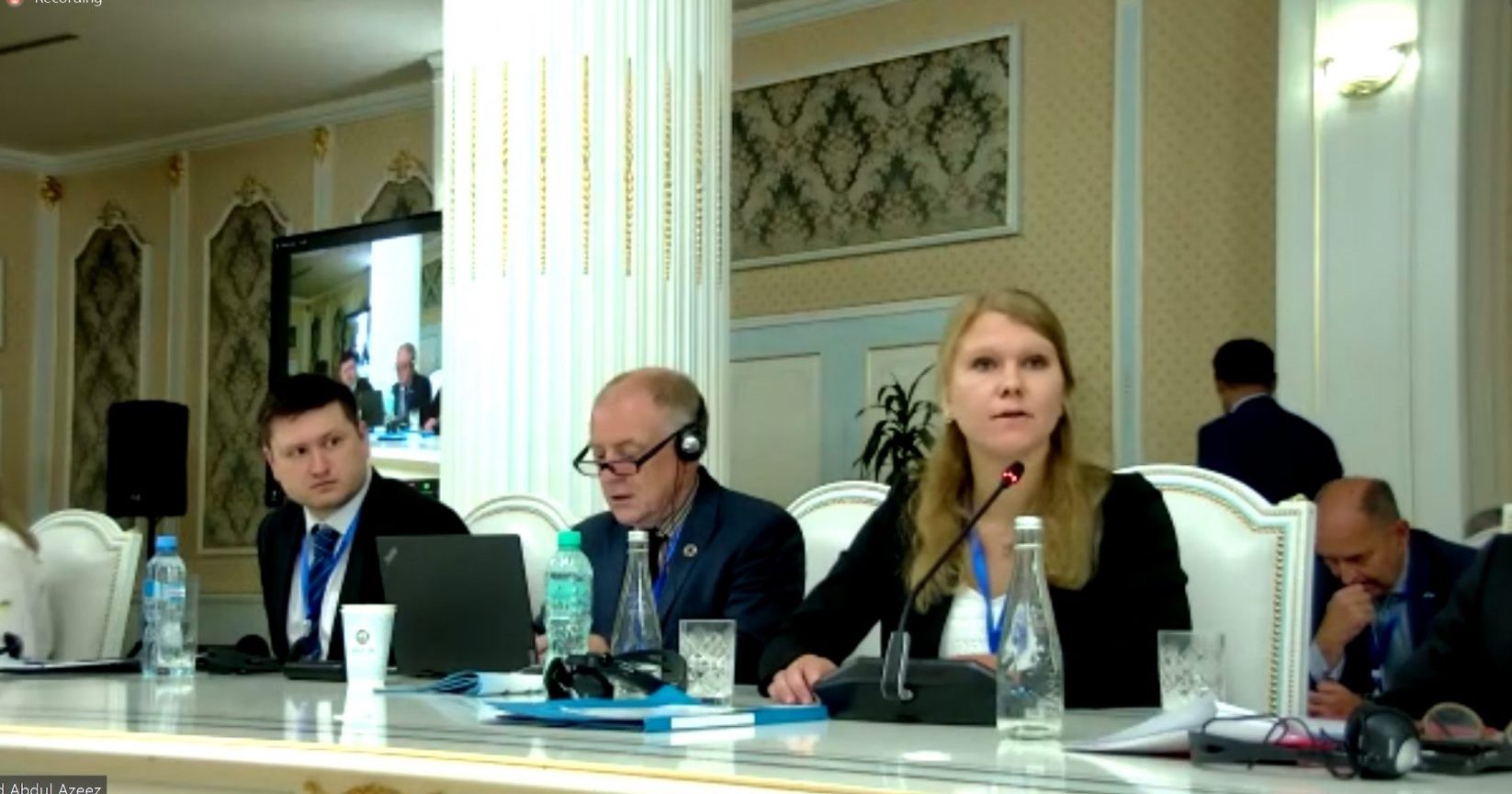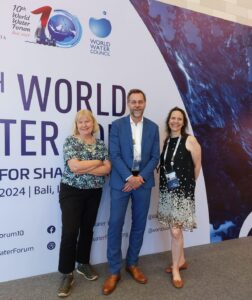This speech was delivered by Tove Lexén at the 2nd High-Level International Conference on International Decade for Action “Water for Sustainable Development”, 2018-2028.
I would like to begin by sharing some perspectives from previously being both a youth climate activist engaged in the youth constituency, YOUNGO under the UNFCCC, and currently a young professional, relevant for the conversations and actions on water governance and climate resilience.
Despite some progress at the global, national and local levels, I share the frustration of many young people around the globe. Climate change is already hitting hard, especially those that have contributed least to greenhouse gas emissions. Young people were born into a world that already was severely damaged and especially those in the Global South feel unseen and unheard. As the Ugandan climate youth activist, Vanessa Nakate, said at the High-Level Champions event at COP26, a 2-degree Celsius increase where she lives means that 2 billion people will be affected by extreme heat stress with an average temperature of 35 degrees. As the majority lack cooling facilities and adequate water supply, this poses a direct threat to human survival. The current global commitments are insufficient to ensure that a 1,5- or potentially even a 2-degree increase will not happen. Thus, young people feel left behind when the current ambitions do not secure their future or even their present.
For averting a future doomsday scenario that many young people fear and tackle the climate crisis where we currently stand, we need to improve water governance and build efficient climate resilience. From the work that SIWI does, I want to share three perspectives on this:
First, develop capacity to make decisions under increasing uncertainty. How we govern natural resources today is already very different from how they were managed only a decade ago, due to climate change, environmental degradation and societal changes. Thus, while it is difficult to predict exactly what the challenges of the future will be, we know that they will look different than they do today. Therefore, within our governance systems there must be mechanisms that allow for learning about – and creating innovative responses to – emerging and unpredictable challenges.
Second, the need for increased interdisciplinary, cross-sectoral and multi-layered governance cannot be stressed enough. With globalization, environmental changes and increasing resource competition, the origins of adverse effects on water resources as well as the solutions to counteract those effects, are ever more difficult to identify. Therefore, stakeholders must collaborate to manage water collectively in a holistic way. For this, countries can be important enablers by creating spaces for multi-stakeholder and participatory governance.
Third, institutional capacity needs to be improved. For tackling the challenges we face with augmented unpredictability and the increased complexity of water governance, we need to build strong institutions. These must be based on the principles of transparency, inclusivity and accountability. We must also avoid fragmentation and ambiguity of roles and responsibilities, within and between different institutions. This is especially important for avoiding the eruption of violent conflict, as climate change’s adverse effects in research have been found to function as a ‘threat multiplier’ where it can add to already existing tensions or grievances in contexts of societal instability and thereby indirectly lead to violence.








